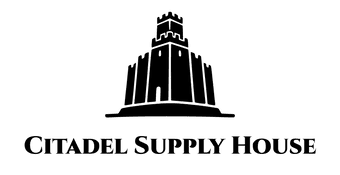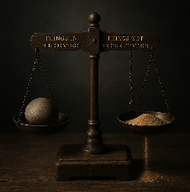The Stoic's Toolkit: 3 Foundational Exercises for Daily Practice
Posted by Cato Pine on Sep 25th 2025
In a world of increasing complexity, many people seek a practical philosophy—a reliable method for achieving clarity and calm. Stoicism offers not just abstract ideas, but a toolkit for the mind.
Building that kit begins with the foundational principle articulated by the philosopher Epictetus:
"Some things are in our control and others not. Things in our control are opinion, pursuit, desire, aversion, and, in a word, whatever are our own actions. Things not in our control are body, property, reputation, command, and, in one word, whatever are not our own actions."
— Epictetus
This is more than a quote; it is a diagnostic tool. This principle, known as the Dichotomy of Control, is the key to mental peace and effective action. The following three exercises allow for the immediate application of this wisdom.

Exercise 1: Apply the Dichotomy of Control
The primary exercise is to use the quote itself as a filter for daily thoughts, especially during moments of anxiety or frustration.
Application:
When confronted with a stressful situation—a professional deadline, a comment from a colleague, or an external event—pause to ask the question: "Is this in my control, or not in my control?"
- If the matter is not in your control (e.g., another person's final decision, their opinion of you, a travel delay), the appropriate response is acceptance. Acknowledging a lack of power over the outcome frees a person from the anxiety of trying to manage the unmanageable.
- If the matter is in your control (e.g., the level of effort applied, one's own response, personal habits), then action is the proper course. This is where all energy should be focused.
By sorting concerns into these two categories, one ceases to waste energy on what cannot be changed and redirects it toward what can.
Exercise 2: Conduct an Evening Review
This exercise focuses on the last part of Epictetus's statement: "whatever are our own actions." It is a method of self-accountability for the choices and actions that were within one's control. This practice was championed by Seneca.
Application:
Set aside ten minutes at the end of the day for reflection. Using a journal, address three questions:
- What was done poorly today? (Identify where a faulty judgment led to a poor action.)
- What was done well today? (Identify where one acted with virtue—courage, justice, wisdom, temperance.)
- What can be done better tomorrow? (Identify duties and opportunities and how to meet them effectively.)
This is not an exercise in self-criticism, but an objective review of personal performance, enabling incremental improvement over time.
Exercise 3: Premeditatio Malorum (The Premeditation of Adversity)
This final exercise is a powerful tool for building resilience against events that are "not in our control." The objective is to prepare for adversity, not to dwell on it.
Application:
In the morning, take a few moments to visualize realistic challenges that could occur during the day.
- Imagine a project receiving a negative review.
- Imagine encountering an unexpected delay.
- Imagine a difficult conversation not proceeding as planned.
While visualizing these events, affirm your capacity to handle them with patience, courage, and reason. By mentally rehearsing for misfortune, its power to shock and overwhelm is diminished. This practice prepares the "inner citadel" for potential challenges.

These three exercises are the bedrock of a resilient and tranquil mind. They are the practical tools for building a life of purpose and virtue through consistent application. The act of writing down your concerns, sorting them into what you can and cannot control, is what transforms this philosophy from an idea into an action. A dedicated space is essential for this daily audit. The Citadel Journal is designed for precisely this work, providing a clean, durable space to build your toolkit and practice your philosophy every day.

